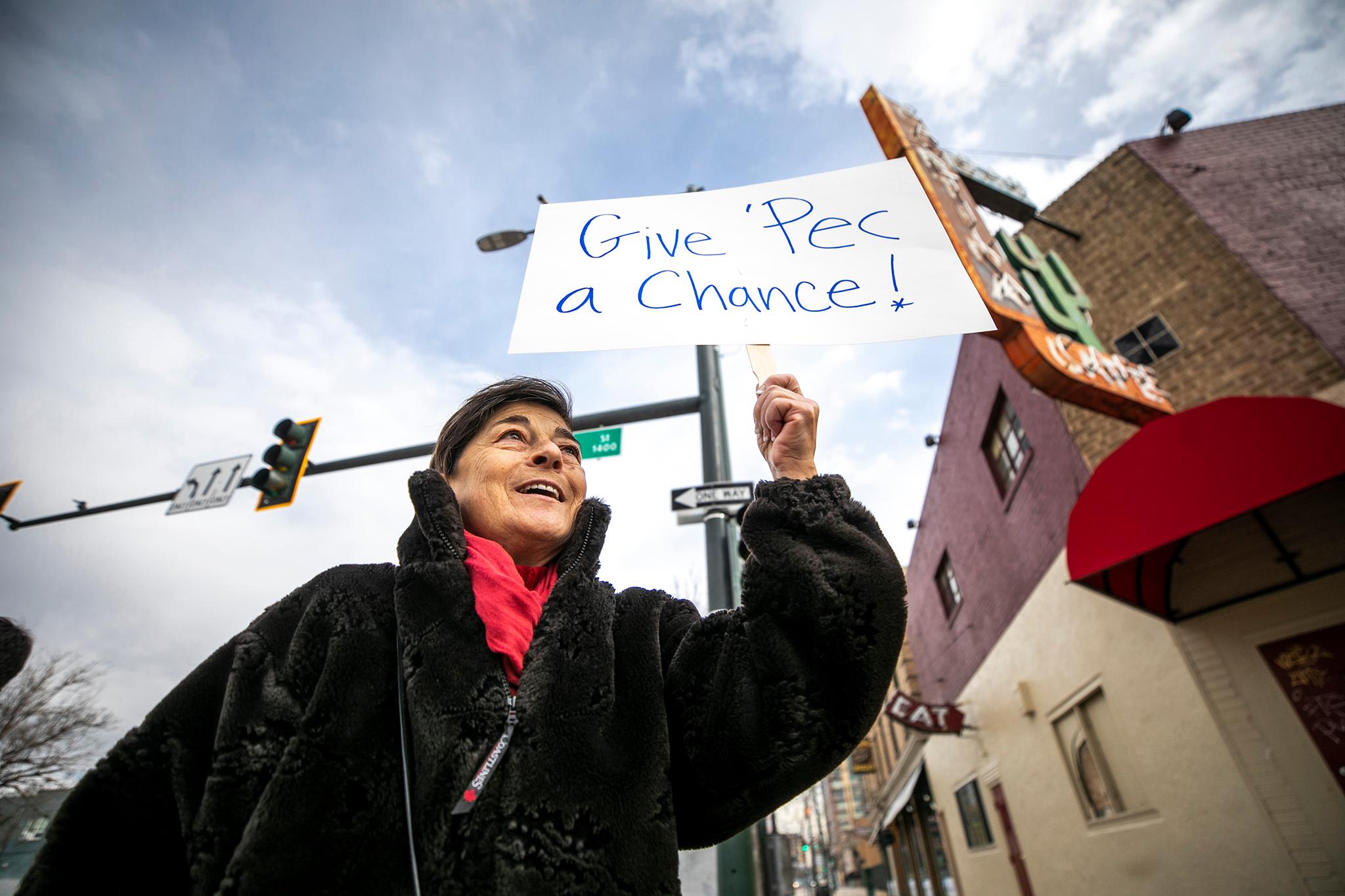Under light rain on the corner of Market and 20th streets, Lanette Passarelli held up a white “Give ‘Pec a Chance!” sign in support of saving the facade of what used to be Denver’s historic jazz venue, El Chapultepec.
A few of the cars driving by honked in support of the small group’s effort last Friday to prevent the structure’s demolition.
Experts in historic preservation and urban planning at both the University of Colorado Denver and the University of Denver offered grim perspectives for Denverites grappling with the evolution of a city they once knew. Venues like El Chapultepec may very well disappear, but neighborhood foresight and action could give them a shot at surviving a little longer.
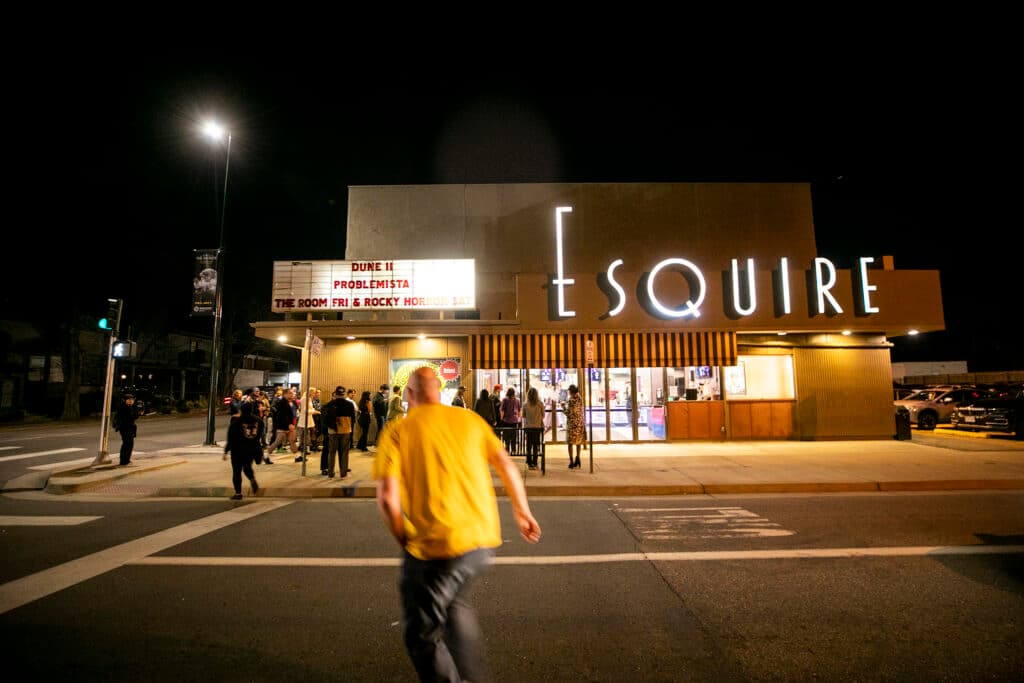
Andrew Goetz, a professor in the Department of Geography & the Environment specializing in urban and regional planning and policy at DU, said it’s important for neighborhoods to be proactive and identify places worth saving, or applying for landmark designations. But even with that effort, nothing's guaranteed.
“It’s a shame because it’s nice to have those kinds of cultural resources in the community, but on the other hand if it’s not viable then it’s just really hard to justify keeping it going,” Goetz said. “Whenever you lose cultural institutions like these it is taking away from the vibrancy and the cultural feel of a community. It diminishes it.”
“A lot of things in Denver are dying,” Passarelli said, reminiscing on the venue she’d frequently visit in the 80’s. “[Developers] got the money, they go on and they always win. We’re not a small town anymore and it’s showing in every area.”
The next day, headlights passed along North Downing Street as a line of people wrapped around the corner for the sold-out Rocky Horror Picture Show inside of Landmark’s Esquire Theatre.
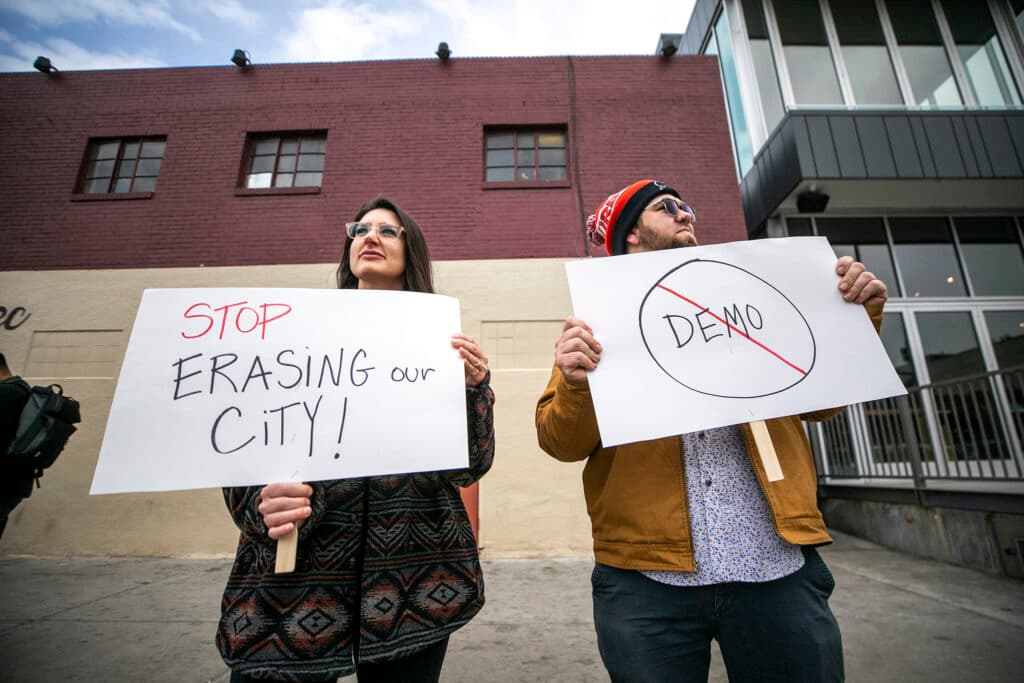
Tyler Maun stood out front next to a cardboard box of 35 white T-shirts bearing an illustration of the historic Capitol Hill theater.
The shirts were a donation from Maun’s local T-shirt company and a collaboration with Save the Esquire’s Jolee Harston and former Esquire employee and artist Sofie Birkin. Proceeds from shirt sales will be used to cover the $875 fee to apply for the building’s landmark designation.
“Denver’s history has just kind of been wrecked in a lot of ways… that kind of drives me insane, to be honest, as a Denver guy,” Maun said. “I have no idea if it’ll work but you try to fight the fight and then figure out what the results are afterwards.”
Two weeks ago owners of the Esquire announced that the theater would be closing its doors in July, four years short of its centennial celebration. Owners plan to repurpose the existing building for upscale office, restaurant and retail use and have plans approved by Denver’s Landmark Preservation Commission to repurpose the existing building, avoiding demolition, through the pilot Adaptive Reuse program.
Back near Denver’s Ballpark neighborhood, the former El Chapultepec venue is threatened with demolition as developers, Monfort Companies, have expressed concerns about the building's structural integrity. Their plan is to construct an entirely new building that would house a trendy entertainment concept similar to a handful of others they operate in the area.
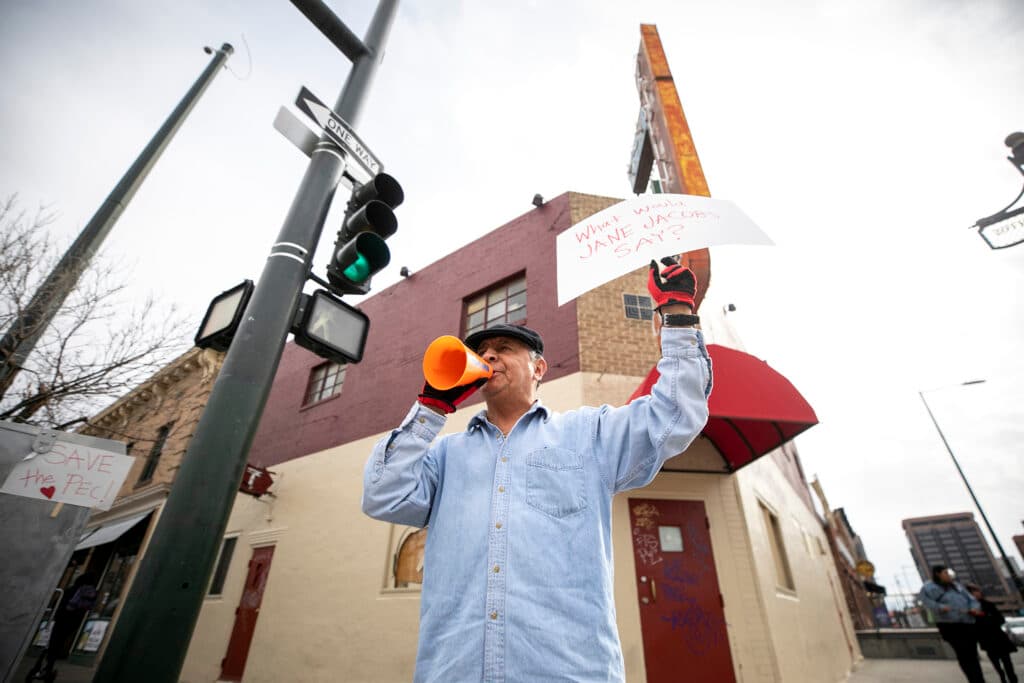
Preservationists at Historic Denver are however pushing back, filing a landmark designation to save the structure from demolition.
Monfort said that they’re surprised at how quickly the building’s decline has played out since they purchased it in 2022 and that the legacy of El Chapultepec has moved to Denver’s Dazzle giving way for them to start anew.
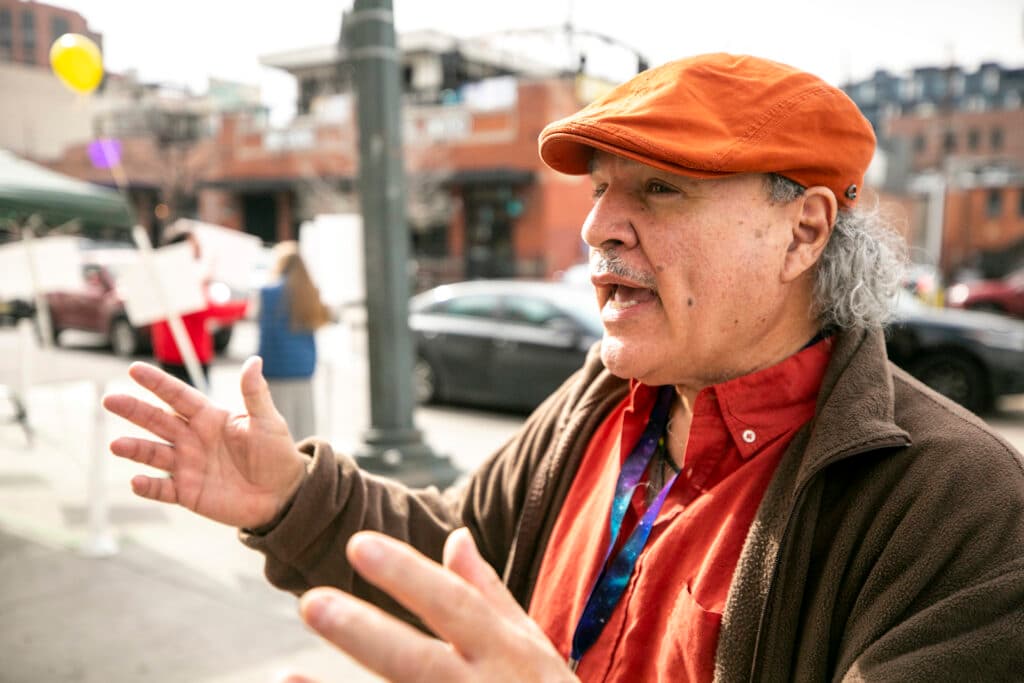
KUVO music director and historian Arturo Gomez attended the rally outside of The Pec on Friday in support of saving what remains of El Chapultepec.
“This building, if the walls could speak it would be an encyclopedia of jazz history here in Denver,” Gomez said. “It’s important that at least the facade, the four walls that housed the jazz club inside are preserved.”

Landmark has saved theaters in the past, but it may not be able to do it again for the Esquire.
Barbara Pahl is a lecturer at CU Denver’s Dana Crawford Preservation Program with nearly 42 years of professional experience in historic preservation. Following the Esquire’s announcement to close, Pahl was reminded of when Landmark’s Mayan Theatre was threatened with closure and demolition back in 1984.
“The economics are always central to preservation victories or failures,” Pahl said. “The building has to be able to successfully be something and cash flow positively.”
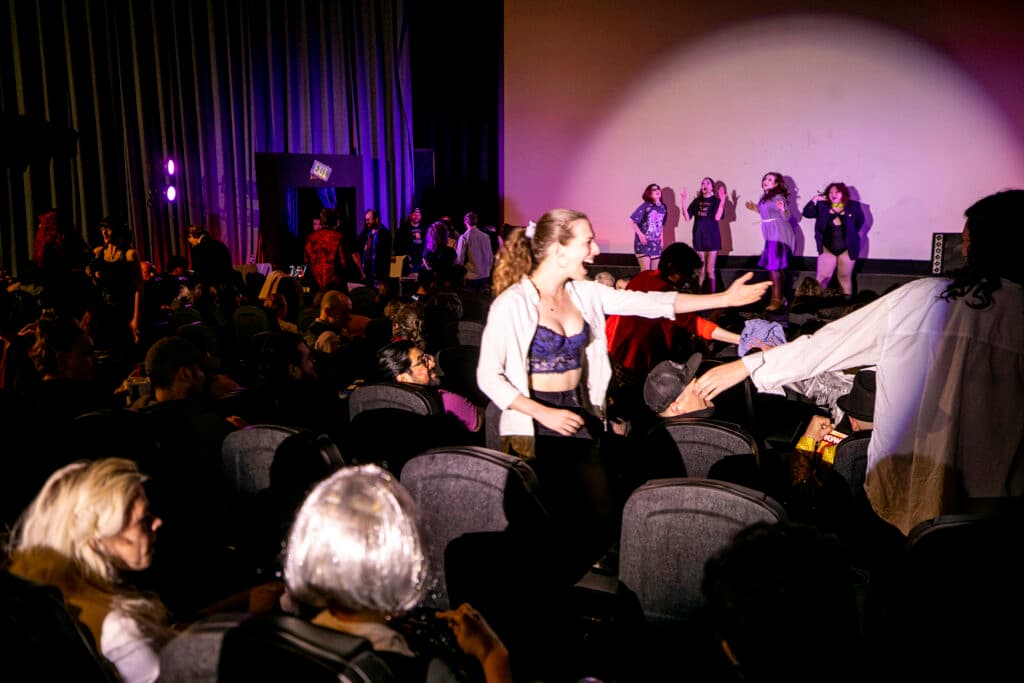
In the Mayan’s case, Landmark converted the venue into a three-screen palace, giving it the flexibility it needed to continue operating.
“When Landmark made the decision that the Esquire was no longer economically viable, I wouldn’t have known who else to turn to except them,” Pahl said. “If [Landmark] couldn’t figure it out, I don’t know who could, frankly.”
Denver has long had a history of movie theaters, as many as 66 of them across the city. Last year’s "Barbenheimer" box office wave proved to be a massive hit across the nation and helped Denver’s theaters hit their most successful box office weekends since before the pandemic. Local film professionals pointed to the importance of programming.
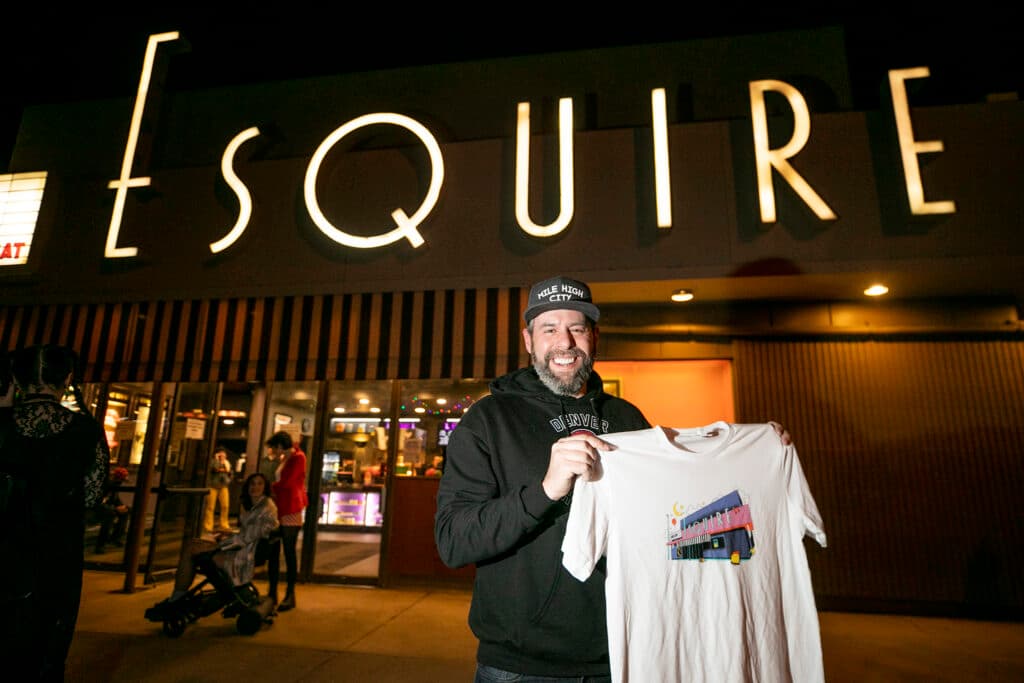
For The Pec, the name of the game is Adaptive Reuse.
The revitalization of Denver’s Lower Downtown, like the historic Union Station, is based on the premise of adaptive reuse or preserving a neighborhood’s history and identity by repurposing and not replacing existing structures.
“The worst thing that can happen to an old building is for it to be vacant,” Pahl said.
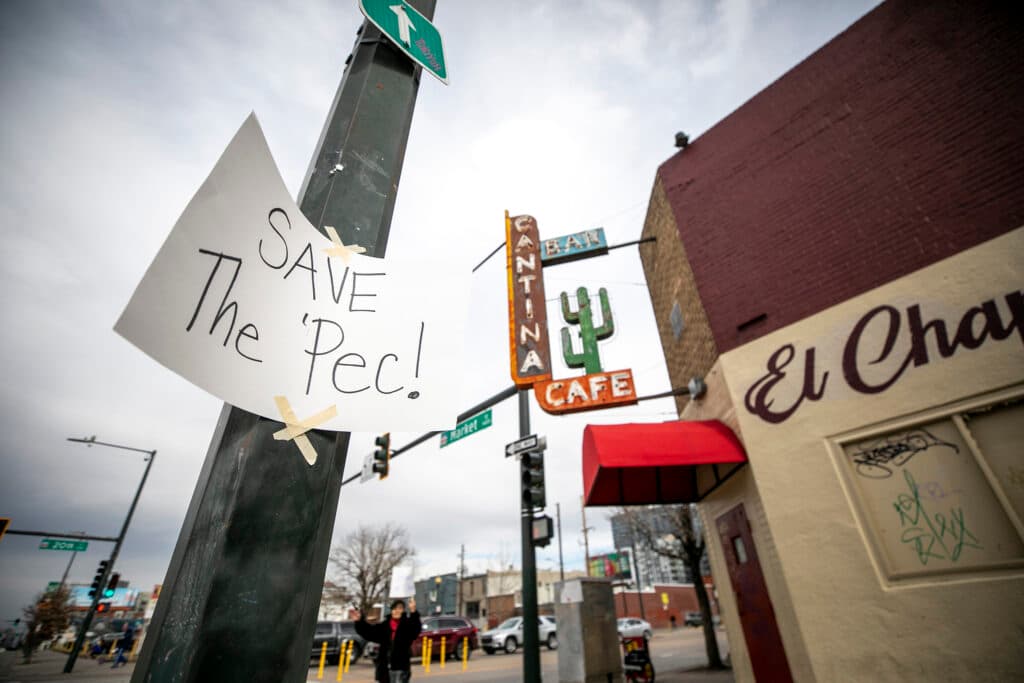
Monfort has said that saving the existing building would be expensive and risky, but preservationists will argue that any building is salvageable.
“It’s got some structural issues that need to be addressed, but those things can be addressed,” Pahl said. “It costs money to do that but that’s why in this state we have historic tax credits at the state level.”
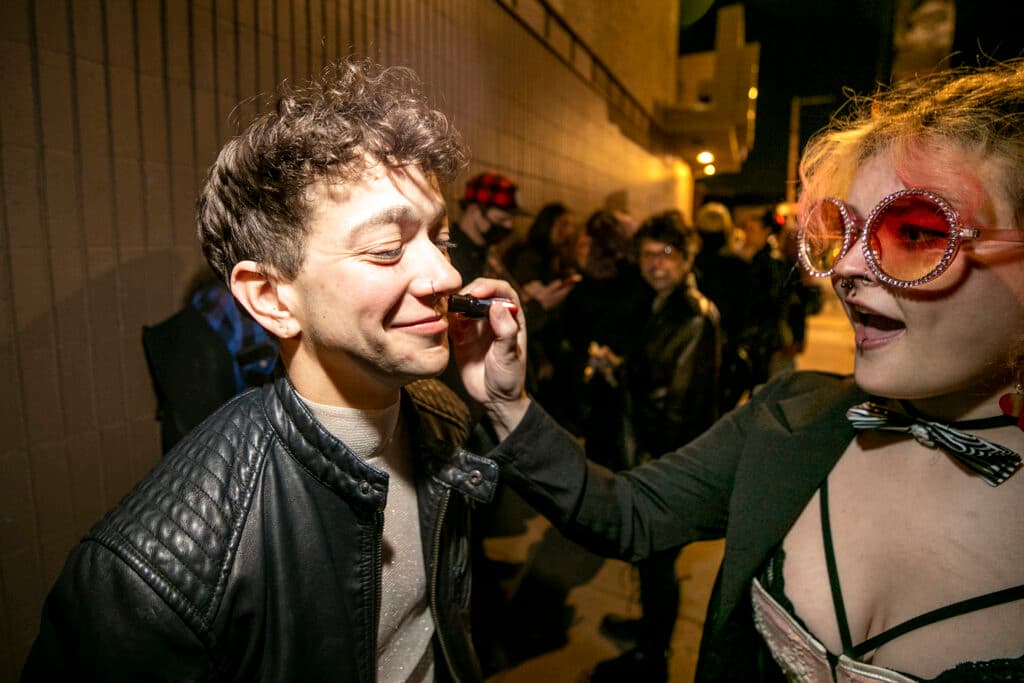
Saving storied old places may actually be a block-by-block battle -- but you can't win 'em all.
“I do wish that we could be more proactive in the city about getting special places protected,” Pahl said. “In this city it’s kind of led by neighborhoods and that’s not true everywhere.”
Crediting the Esquire and midnight screenings of The Rocky Horror Picture Show with helping her find community in Denver, Harston began the “Save The Esquire” Instagram community shortly after plans were submitted to redevelop the property last year. Trips to the movie theater have turned nostalgic as the end of Landmark’s tenure creeps closer.

“I’m really trying to soak up everything about this place and really reminisce about the memories I’ve made here,” Harston said. “My dream is to keep it a movie theater. I would love for this to stay a place for marginalized communities to come and celebrate art.”
Harston said that efforts to save the theater has taught them the importance of being involved in neighborhood associations.
“It’s important to get involved so that it doesn’t become like this situation or other situations happening where it’s too late to save it,” Harston said.

